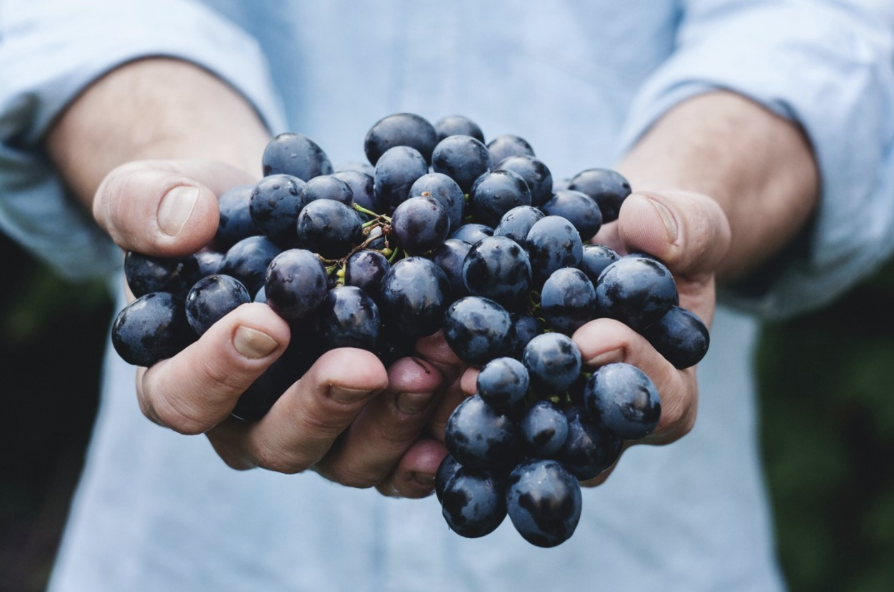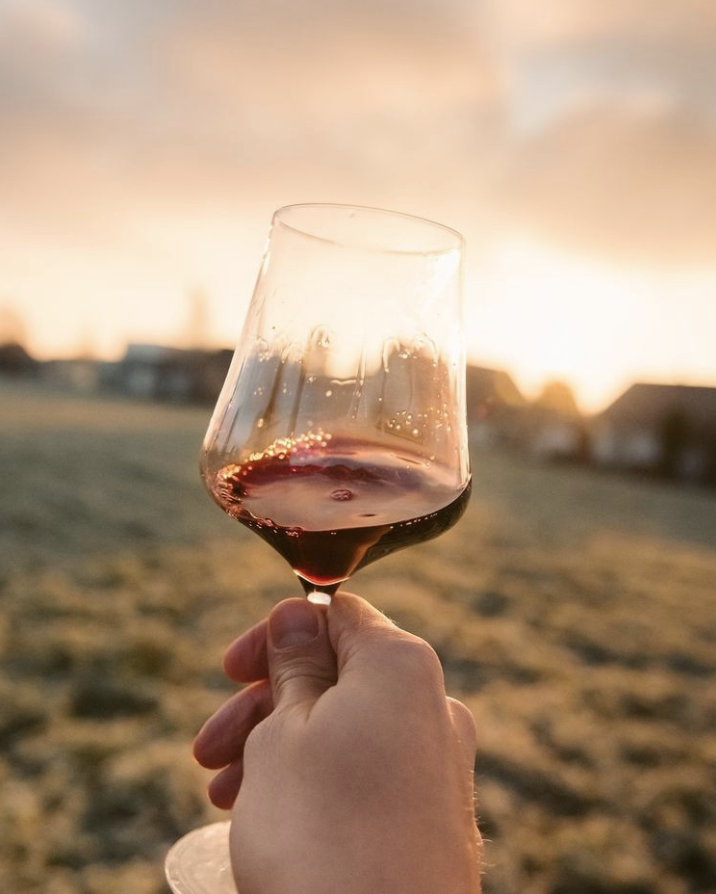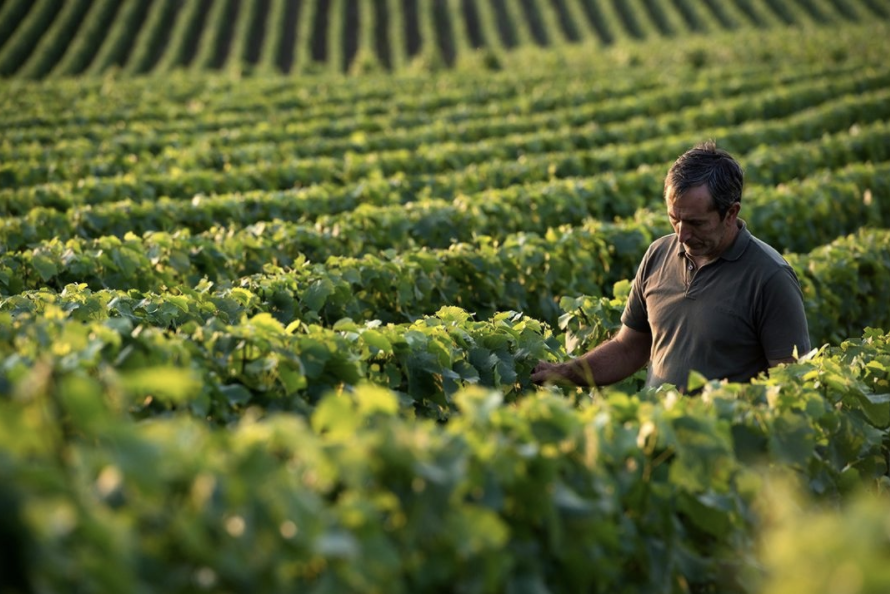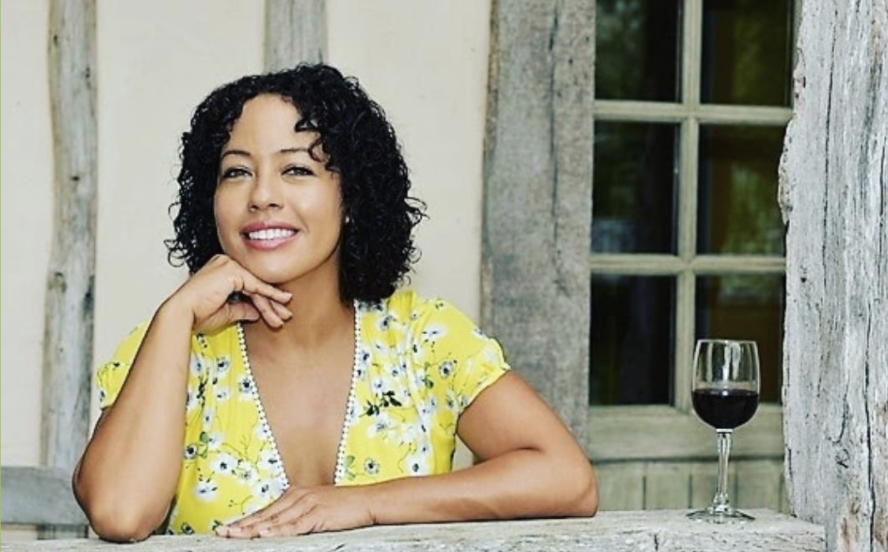DISRUPTING THE WINE INDUSTRY WITH VEGAN WINES
Frances Gonzalez is the founder of Vegan Wines, making vegan wines more accessible. Working closely with independent wineries, Vegan Wines curates a quality wine selection, while supporting sustainable processes.

Frances Gonzalez is the founder and owner of Vegan Wines, a wine club and restaurant supplier dedicated to making vegan wines more accessible. Working closely with grape growers and small wine makers, Vegan Wines not only curates a quality, affordable wine selection, but also supports independent growers and sustainable processes. Read her interview below:
To begin, tell me a little about how you came to build Vegan Wines:
I’ve been a vegan for a very long time, so long that I’ve lost count. I’m also a total foodie and love going out to eat and drink.
A few years ago, I found out that not all wines are vegan. The wine seller was listing the ingredients in the wine and mentioned egg whites. I stopped him right there - I was shocked - because we never think of wine as more than grapes and yeast. I learned that egg whites are used to filter wine to create clearer liquids and reduce sentiments, and that wine is not always vegan.
I didn’t go to school to enter into the wine business, but I started inquiring and doing research at other vineyards to see which were vegan or not. The more I researched, the less I saw about vegan wines - there was no conversation on it. I couldn’t believe that not only did wine directors and sommeliers not know if their wines were vegan or not, but they also didn’t seem to care.
So, I bought the domain Vegan Wines and registered a business name and began.

That’s amazing. It’s so cool to hear that you found a problem, felt very passionate about it, and also realized you could be the solution and leader in changing the way wine is made. What are the other ways in which animal products are used in wine making?
First, it’s the soils where the grape vines are growing. Many growers use animal manure, which is often sourced from slaughterhouses and is full of waste with antibiotics and unhealthy ingredients. Some soil has fish fertilizer, which is often the cause of the headaches you get from drinking wine. I only work with grape growers who use green manure or leftover harvest to fertilize. These are often hand harvested vineyards or small makers.
Second, it’s the filtering, which instead of egg whites, I will work with wine makers using bentonite clay to filter their wine. But, I also like to keep the natural sediment in each bottle.
Third, the cork wax is made from beeswax. I look to businesses who use no wax, or a waxy substance from sugar cane or some alternative.
At the start, was it easy to find winemakers who were adhering to all of this, or rather, conscious that they were producing vegan wines?
I have to turn people down even if it’s just the soil that has animal fertilizer. Unfortunately, there are regions around the world where winemakers aren’t in control of changing their growing process because of certain requirements around specific wine regions.
A lot of Italian winemakers are vegan, Umbria has been doing this process quite naturally. And many winemakers are willing to create vegan wines, my first wine import came from Bordeaux, in France, and they made that barrel just for me.
In some instances, I am working with really creative winemakers. I'm excited about a woman winemaker, Franciska Wines, in Puerto Rico who is making wine from cacao.
Having a relationship with the winemakers, we can talk about ways to be eco-conscious, not just around animals, but also how the wine is packaged. Wine doesn’t need those heavy bottles, they can be moved in cans or aluminum bags. There’s a lot of room for innovation - but winemakers will only change if they feel certain they can sell it.

Totally, and it’s similar in all types of industries - fashion, food, transportation, home goods - there are lots of ethical practices businesses can take, but it also requires consumers to be aware enough to seek out the product. Currently it seems like natural and organic wines are everywhere - where does vegan fit in?
Natural wines have less additives and chemicals in them, organic wines are made with certified organic grapes, and then there are biodynamic wines following the lunar calendar. None of these mean no animal products.
What is a challenge for selling wine is that all countries have different standards and regulations, so a certification of being organic or not changes from one wine to another. For instance, the standard in the EU is different from Canada’s, and there is no certification in the US for vegan wine from the soil up other than our Vegan Wines trademark certification. All other labels say vegan friendly or vegan only in the winemaking.
How has it been to dig your heels into the wine industry?
The first hurdle was being vegan. I knew that would happen, so it’s fine. What I didn’t know upon starting Vegan Wines is how male dominating the wine industry is. I joined a group called Women of the Vine and Spirits, which helped to provide confidence that I’m not alone, and that all the women in the space are supporting one another to succeed.
Then, I had to learn how to pick good tasting vegan wines. I visit wineries to learn as much as possible, and if I meet a sommelier who doesn’t know how the wine is made, or whether it’s vegan, then I go to the source - winemakers and grape growers. I like to represent the winemaker and grape grower in addition to the wine.
Once you found your winemakers, and got in deep with the process and the people, what exactly does Vegan Wines offer to wine drinkers
Directly to consumers, we offer a seasonal wine club with a variety of vegan wines and vintages from all over the world. For the wine club, we partner with other small businesses to curate food pairings with the wine as well. As an optional add-on, for example, as in last wine club shipment, we offered vegan cheese and meat from The Herbivious Butcher, and included plant based recipes from Powered By Plants Consulting. We ship to over 40 states.
Additionally we supply restaurants with vegan wines, and recently created a small batch label out of the Finger Lakes in New York called Hazel. Hazel is a brand that incorporates independent small wineries: Hazel Chambourcin from the Finger Lakes, Hazel Pinot Noir and Hazel Ramato from Oregon Chehalem Mountains.
As a wine drinker, I’ve come to expect speciality wines, such as natural, organic, and now vegan to be at a higher price point, but you manage to keep costs affordable while delivering quality vegan wine. Is there any cost differentiation in producing a vegan wine or not?
Always when buying smaller quantities, the cost per item will be more than big businesses who can order at large quantities. But, the wineries we partner with have found ways to keep costs lower and therefore I am able to keep prices affordable to consumers as well.

From your start in 2018 to now and beyond, how do you expect to see vegan wines and Vegan Wines grow?
Putting it all together, Veganism is not just about not eating meat, it’s about protecting the earth, being kind to people and how to take care of the environment. I want to make vegan wines more accessible and make it a new norm.
I want the small businesses I work with, the grape growers and winemakers, to be successful. And I want the larger manufacturers in the industry to change their ways. If we can create awareness for people to know and choose vegan wines, then small and large businesses can react to that.
For us, I want to continue working to grow Hazel as another aspect to our business, working with the small vineyards in the Finger Lakes and Oregon.
See the wines available at Vegan Wines
Learn more about joining the seasonal Wine Club at Vegan Wines
Check out what restaurants near you have Vegan Wines
Give Vegan Wines a Follow on Instagram

